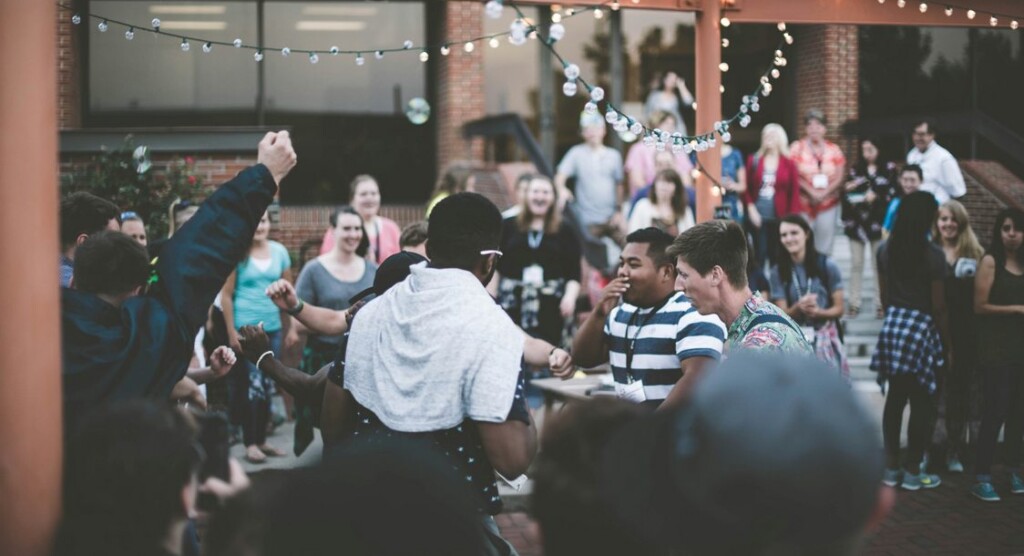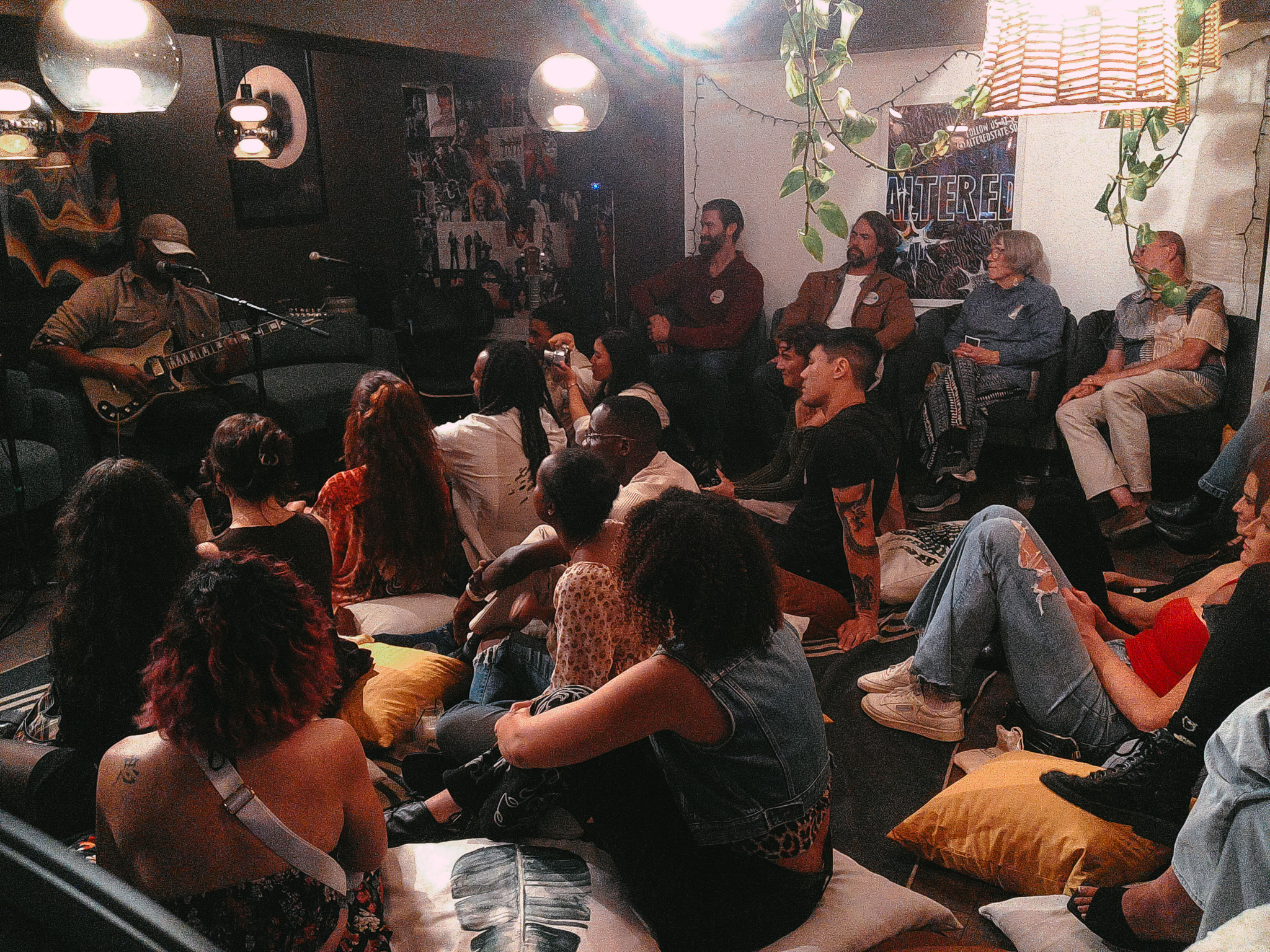‘Offline’ Trend Sees Thousands Attending Phone-Free Concerts, Dates, And Events Where You Can ‘Find Your People’

One of the realities of social media addiction is the self-awareness of the addicted. A recent survey from the British Standards Institution found that 68% of teen respondents said they feel worse when they spend too much time on social media, and 47% would remove them from existence if they could.
So it’s not surprising that hundreds of thousands of people are now attending ‘IRL’ events (in real life) where phones are either banned or limited.
Several new services are now curating “offline experiences” for social gatherings and dating, and the number of these events that are landing on the calendars of Americans and Europeans is a testament to the deep desire for human-to-human contact.
GNN has reported on the offline movement before. The Offline Club of Europe has over half-a-million Instagram followers (an ironic yardstick of success), and chapters across the continent gather at venues where one’s smartphone is locked in a box at the start of the event.
Once inside, reading, chatting, sharing a drink, playing a board game—in short, everything we used to do to socialize—are preferred over looking down at your phone.
In addition to the Offline Club, companies like Kanso, Sofar Sounds, and the app 222, are making a business out of disconnecting humans from their social media feeds that overflow with targeted ads and AI-generated drivel.
Each one has found itself a niche, but all are returning us to the social activities that our parents used to do before phones. Kanso, which is not an app but rather an event planner, has hosted a few curated, phone-free events at different venues in large cities, mostly NYC, San Francisco, or London.
They recently conducted their first phone-free live music event in San Diego called Kanso Unplugged.
After Kanso’s first-ever event in New York City, Founder Randy Ginsberg wrote in an article explaining the concept: “Immediately after the event, I had people come up to me saying it was the best experience they’ve had in New York.”

“Guests stayed well past the allotted event duration, and many went on to form real friendships after meeting there. One guy even met an investor who wired money into his startup the very next day.”
Participants’ phones are placed in a small locker, which they can access at the end of the event.
222 is a free app (only for iPhones currently) that sends out invites to groups of people that take place in public settings, encouraging its users to “choose chance”. There are no profiles, no sliding into DMs, no swiping, and no scrolling. The app will find other “vetted” users who are most likely to share interests, and invites them all to these public events where they can mingle freely.
It is highly rated by 3,600 users on Apple (4.7 out of 5 stars), where it was lauded as a “MUST try,” and a versatile event organizer that offers the chance for a fun night out even if it doesn’t lead to romance.
Sofar Sounds is a pop-up concert business that connects artists and audiences through unique and intimate experiences in 400 cities around the world. The events aren’t offline or phone-free per se, but they ask that participants refrain from using their phones during the show.
ALSO CHECK OUT: Popular Hiking App Releases 27,000 Trail Maps to Download for Free, Increasing Hiker Safety
Sofar sends out the address of the venue less than 24 hours before the start time, which can be anywhere—in apartments all over the world, in parks, art galleries, on rooftops, and even in one of Richard Branson‘s homes.
“We didn’t expect that it would resonate with others to the extent that it did,” said cofounder Rafe Offer in an interview with Business Insider. “People started calling us from other cities saying they wanted to host events there too, and it entered into a movement. We had one at the top of a ski jump in Oslo overlooking the city.”
Spaces are often very tight to allow for unplugged instruments, and phone-use is requested to be postponed until after the show, to allow full attention on enjoying the music.
ANALOG IDEAS: Engineer Revives the Pay Phone for Vermont Community to Make Free Calls in Their Cellular Dead Zone
There are likely more options for engaging with the world and humanity offline; these are just a few that are exploding in popularity. So, if you recoiled a few years ago at Mark Zuckerberg’s notion that we’d all ‘own our own houses’ in a Metaverse that is only seen while wearing goofy and expensive VR goggles—or if you experience revulsion at the news that people are making friends and having relationships with AI chatbots, you’re not alone.
The rapid growth of services like 222 and Kanso proves that regardless of how digitized the world has become, there are many for whom analog is, and always will be, the preferred medium of connection.



Please be good and do not spam. Thank you.